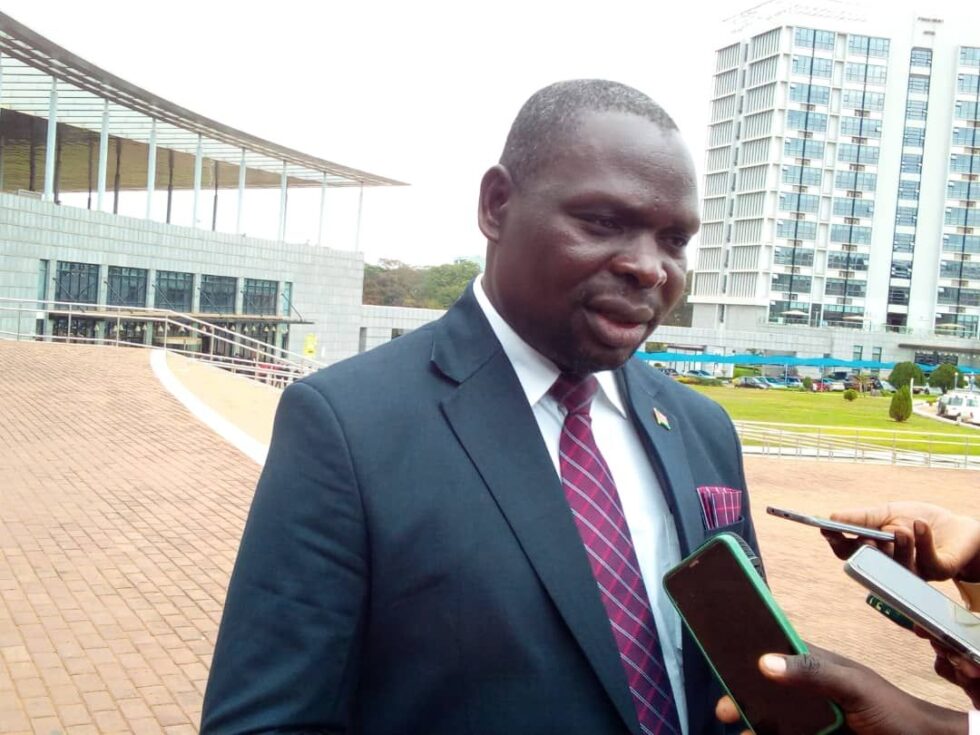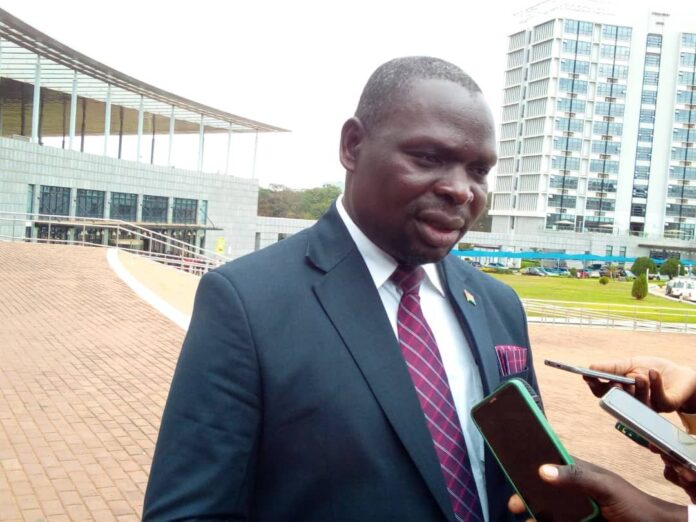By Dean Chisambo
Minister of Finance and Economic Affairs, Simplex Chithyola Banda, has expressed optimism about the adoption of home-grown economic theories, saying they have the potential to transform and stabilise Malawi’s economy.
Chithyola made these remarks during the Dynamic Leaders and Governance Forum (DLGF) held in Lilongwe.
He stated that Malawians now increasingly recognise the need to embrace locally-developed economic strategies rather than relying on foreign models such as Classical, Keynesian, and Marxian theories, which have been applied for decades.

Chithyola emphasised that Malawi’s economic context requires bold, tailored decisions that support practical solutions and inclusive participation in economic activities by local citizens.
He posed thought-provoking questions, saying: “For instance, we talk about mega farms. How many local people are actively participating? In the mining sector, how many Malawians are involved?”
The Finance Minister lamented that even individuals who believe they are knowledgeable often lack awareness about ongoing mining activities and how they can take part in them.
He revealed that the time has come to adopt what he termed “terramaid economic theories”—approaches that prioritise widespread participation of Malawians in economic transformation.
Chithyola stressed: “I think the focus has to be on production, production, and production if we are to change our economic story. Supply must exceed demand in order for us to stabilise our economy.”
He further expressed concern over Malawi’s overdependence on imported goods, which continues to drain the country’s foreign exchange reserves.
He also pointed out that Malawi is not producing enough for export, with most production being consumed domestically.
The Minister emphasised that Malawi must increase production while also adding value to its goods in order to compete effectively in regional and global markets.
“There must be deliberate efforts to balance our trade—exporting more while importing less,” he said.
He noted that a stronger export base would help the country accumulate and preserve its foreign currency reserves.
In his contribution, Reverend Dr. Zaac Kawalala highlighted that despite decades of independence and the presence of many educated professionals, Malawi continues to rely on borrowed economic models that are not tailored to its unique context.
Kawalala criticised this trend, stating: “Malawi does not register its economy the same way Western countries do. We cannot continue with economic colonialism, where those who once scrambled for Africa’s resources return as advisors to dictate what we must do. That is not the way forward.”
He stressed the need for Malawi to utilise home-grown solutions, citing Kenya as an example where government-to-government models have helped reduce fuel prices and stabilise the local currency.
Kawalala also called on Malawians to be patriotic and nationalistic, and to stand up for the vulnerable and poor as a way to ensure inclusive national progress.
The DLGF brought together government officials, civil society organisations, faith leaders, academics, and representatives from the private sector.



